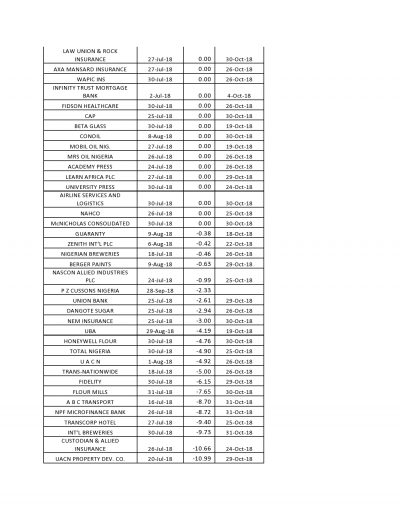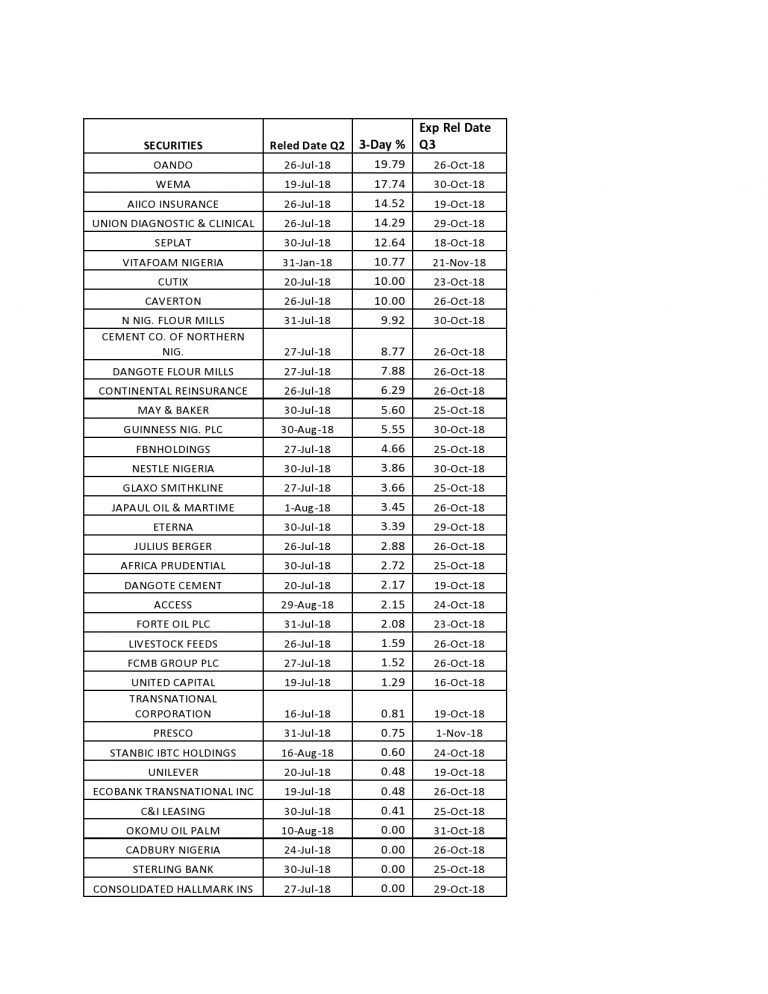
Nigeria’s equity market this year has dashed the hopes of many investors and players, after recording very juicy returns in 2017, which ushered in a strong market in January. This prompted many analysts and research firms to project a positive outlook for the economy and market in 2018.
On the back of such rally, many players, including individual investors, traders and others had expanded their expectation, while stockbroking firms raised salaries of their workers and even employed more staff. Some even increased the incentives of their directors before the ongoing downtrend, which was triggered by profit taking initially, during the full year earnings season.
This was made worse, when stock prices did not react positively much to impressive numbers presented for the full year, due to exit of capital from emerging and frontier markets after the U.S hiked interest.
This reversed the inflow of funds to the markets, which was in addition to the dwindling economic activities, insecurity and political uncertainties as revealed by data emanating from the Central Bank of Nigeria (CBN) and the National Bureau of Statistics (NBS).
As if these were not enough cause for alarm, the political tension in the country waxed stronger, forcing listed companies to post mixed Q1 and Half-year numbers in the ensuing earnings reporting season. At this time, funds continued to leave the market at a steady rate, even as those few companies that posted impressive earnings did not elicit the expected positive reactions. At this time too, smart money had continued to scale down their positions for higher yield investment environments in developed markets and economics.
In the past two earnings reporting season for 2018, reaction has been weak and mixed, due to the prevailing socio-economic and political risk environment.
Investors are probably more familiar with the bull or bear market, forgetting that they come with different characteristics, or conditions that are peculiar with each cycle. The market dynamics behind any situation determines the impact and how long a company’s share price will rally on the strength of its earnings performance when released to the market. Companies reporting surprising earnings during an up market experienced pretty brutal initial reactions than in a down market, the average one-day reaction to their earnings reports so far this year has declined by 1.2%, due to the prolonged correction.
The second quarter earnings reporting period has actually been the most bearish for stock price reactions throughout history. It is the only quarter of the year where stocks have historically averaged a decline (-2.19%) on their earnings reaction days going back to 2009.
This season, the possibility of earnings reaction improving is high, due to huge losses many blue chips stocks had suffered, ahead of the 2019 general elections beginning in February, even as the issues and choices available have become clearer. This is reducing the political tension in the land, enabling investors better analyse their risks, with presidential candidates of the major political parties’ now known.
Also, as the year winds down many market players are likely to start returning to the market if the expected Q3 numbers beats expectation, revealing what the dividend possibility will be to the investors at the end of this financial year and post-election that will usher in another recovery trend on expected economic recovery.
This is revealed in the table below, the average three-day earnings reactions during Q2 earnings reporting season.
See the tables above for earnings reaction in the last earnings season (Half Year)







